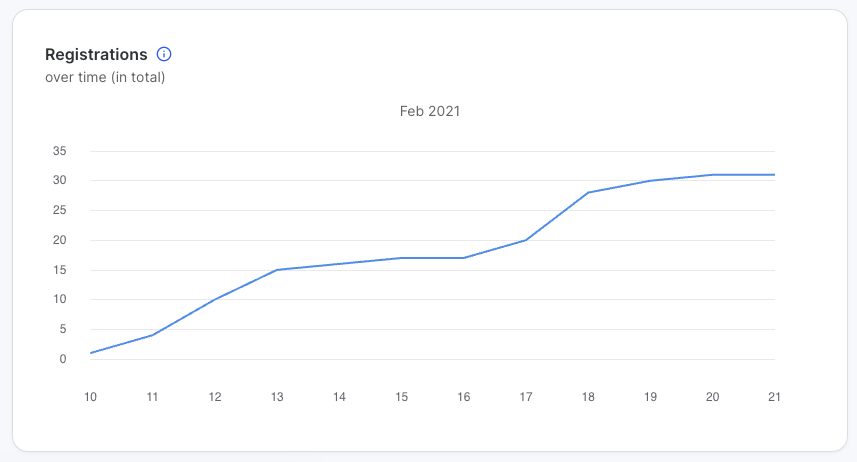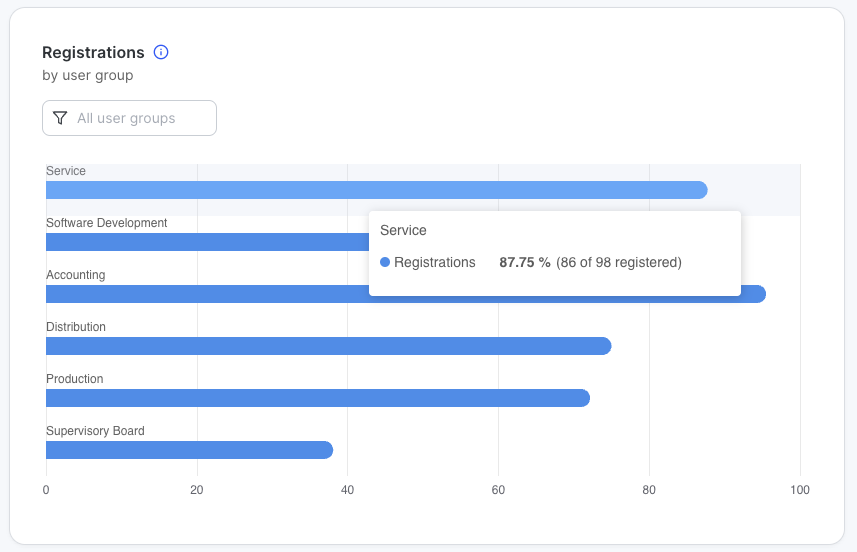E-Learning registration metrics
Registrations over time

Definition
Cumulative count of registrations over time. Users register only once, so campaigns created later will generally start with a non-zero registration count.
Multiple campaigns / Multiple tenants behavior
Classic Learning: All users included in either campaign or tenant are included, but each user is only counted one time, no matter how many campaigns that user is part of. Due to this behavior, the latest registration rate is likely not to match between the base registration rate and registrations over time metrics.
The bounds of the chart are expanded to include the time between the start of the earliest campaign and the current date.
Personalized Learning: (multiple tenants only) All users included in either tenant are included. Registrations are superimposed and the chart reflects the cumulative addition of total registrations from all tenants on each date.
The bounds of the chart are expanded to include the time between the start of the earliest tenant campaign and the current date.
Registrations by user group

Definition
This shows the percent of invited users who have registered broken down by user group. The chart tooltip also gives the count of users in each user group who have registered and the total number of users in the user group.
Multiple campaigns / Multiple tenants behavior
Classic Learning: All user groups included in each campaign and tenant are included. If a user group is included in multiple campaigns, the components for that user group’s bar are simply added together. This means, for example, if a user group has 15 members and is included in two selected campaigns, the bar will show starting rate out of 30. Due to this behavior, the latest registration rate is likely not to match between the registrations over time and registrations by user group metrics.
Values for individual bar counts and rates will not change for multiple tenants, since users are invited by user group.
Personalized Learning: (multiple tenants only) All user groups included in each tenant are included. Values for individual bar counts and rates will not change for multiple tenants, since users are invited by user group.
